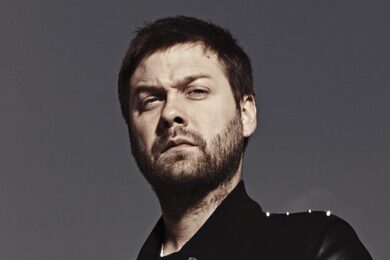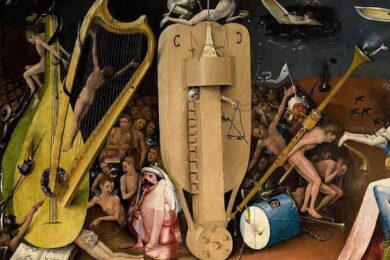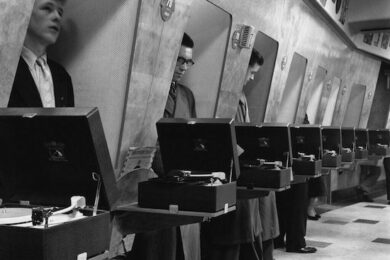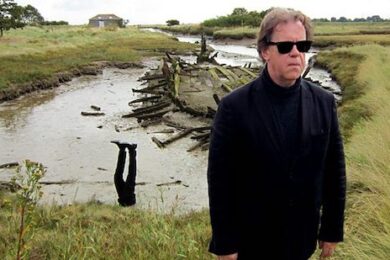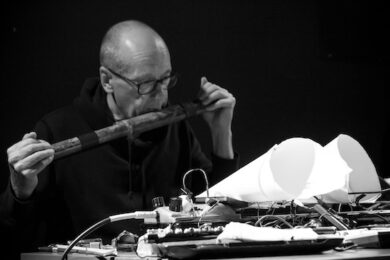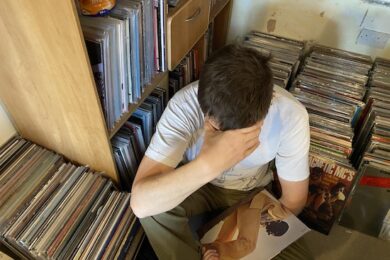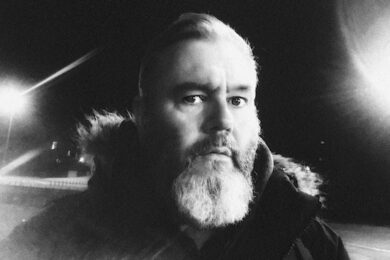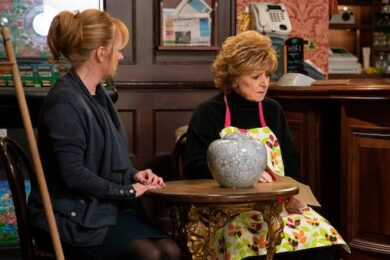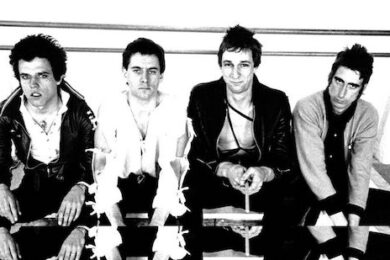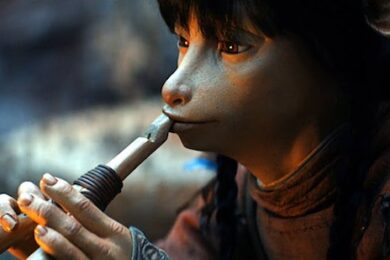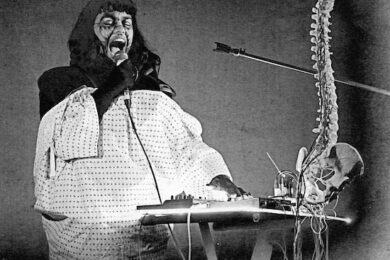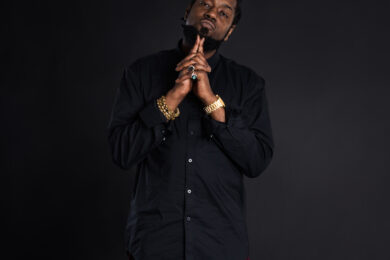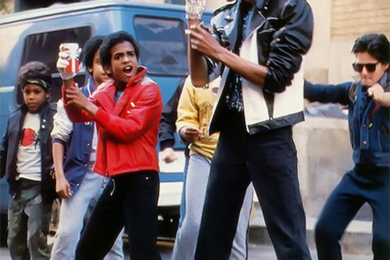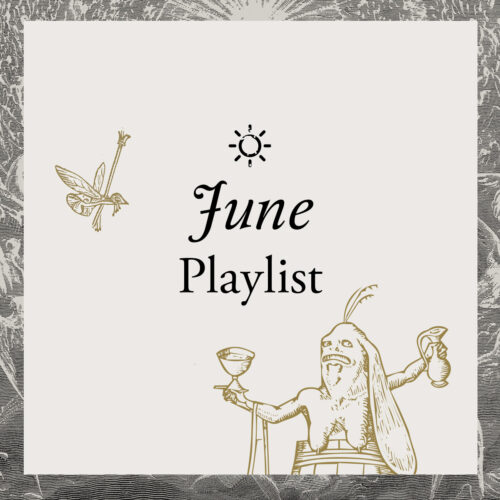


Black Sky Thinking
Essays, investigation and opinion on today’s cultural landscape
Glastonbury At 50 & The Loss Of The Communal Under Coronavirus
25 years ago, Jude Rogers had her life changed somewhere in a field near Pilton. On the 50th anniversary of the first Glastonbury weekend, she reflects on the sunny days of 1995, lamenting the loss of the communal live experience in the Coronavirus summer of 2020

Why Monuments Are More Than Racist Symbols, By Algiers
Algiers grew up in the shadow of Stone Mountain, a giant memorial to Confederate military leaders built as late as the 1970s. Here, the group's Ryan Mahan explains how it inspired their music and why we have to look at the structures behind the symbolism of monuments

Build, Connect, Educate: Why The UK Needs To Examine Its Own Racism
For every George Floyd, Breonna Taylor and Trayvon Martin, there's a Rashan Charles, Sean Rigg, Cynthia Jarrett or Mark Duggan. Police brutality and racism against the black community is not just a uniquely American travesty

Ten Things You (Possibly) Don’t Know About Kraftwerk
While doing her research for a meaty Kraftwerk retrospective in The Observer, Jude Rogers found out a fair few things that were a bit too Geek Central for the general broadsheet reader. Here follows therefore, 10 things you might not have known about Kraftwerk. Photo by Lucy Johnston

How The Music Industry Took On Napster And (Not Everyone) Lost
Two decades on from Metallica's infamous decision to sue Napster, Eamonn Forde looks back and explores how the rock troupe's co-belligerent Dr Dre ended up outsmarting Ulrich & co, changing tack, and laughing all the way to the bank

How Coronavirus Is Killing The Music You Love
With live music at a standstill, coronavirus poses an existential threat to artists, festivals, promoters - even this publication. Ed Gillet examines the implications of the pandemic and the incompetence of the British government in dealing with it

Cowley At The Glory Hole: The Art Of Queer Liberation
Taking a holy trinity of Patrick Cowley's sex journals, Roy Garrett's poetry and Maxx Mann's forthcoming reissue, Max Shand explores the joy and tragedy of the queer American underground, from 70s exuberance to the 80s AIDS crisis
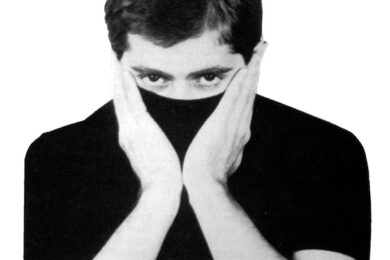
We’re Free? What Are You Being Served Tells Us About Brexit
As the EU waves goodbye on Brexit Day, Alexei Monroe looks at two declining institution full of sexist attitudes and obsessed with better days that never really were and joins the dots between England and Grace Brothers' Department Store of 70s sitcom Are You Being Served

Listen Deeper: The Strange Case Of Iannis Xenakis & Pauline Oliveros
Iannis Xenakis has long been seen as a titan of modern composition, written about in awed tones, the subject of innumerable retrospectives. Yet why, asks Dan Siepmann, has his work for so long overshadowed non-male artists like Pauline Oliveros?

How Rosalía’s Music Is A Journey To The Heart Of Divided Spain
Rosalía has been one of pop's standouts in recent years and, says Ben Cardew, her music provides a way for outsiders to understand the complexities of contemporary Spanish politics. Photo thanks to Primavera Sound / Sergio Albert
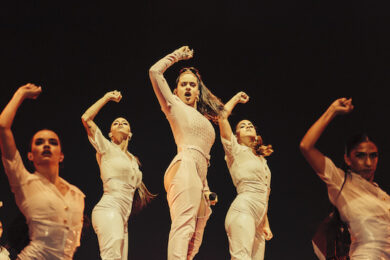
Why Celebrities & Brands Can No Longer Hide Their Political Allegiances
As the most significant general election in decades looms, Nathalie Olah questions celebrities and brands who like to make vague political statements but don't take a stand to say who, exactly, they're endorsing

What The Blue Story Ban Tells Us About Racism In Britain
Jeffrey Boakye argues that the banning of Blue Story by two cinema chains shows how in the UK black art is held to different standards to everything else, and "a reminder of just how poised society is to reject blackness on the assumption that it can be a corrupting force"

Idle Threat: Who Are The True Champions Of DIY Rock In 2020?
You can call it “Crank Wave”, you can call it “Wonk”, or you can even refer to “It Might Give You A Headache But Boy Is It Exciting-core”, says John Doran, as long as you recognise the importance of the Speedy Wunderground label and drop the embarrassing references to IDLES and Shame

How Punks In Churches Changed Germany & What Still Needs To Be Done
Thirty years on from the anniversary of the fall of the Berlin Wall, Beate Peter remembers a childhood where music was an escape from the strictures of Communism and punk gigs in churches were subversive acts and asks, what needs to happen to complete the process of reunification? Photo of Di Toten Hosen at a church gig by Mark Reeder
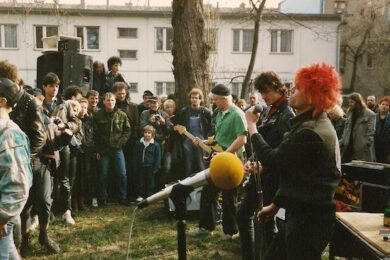
No Obligatory Excuse: Is ‘The Classical’ By The Fall Racist?
Coming just a year after Mark E Smith's death, Cherry Red's wonderful reissue of Hex Enduction Hour and Paul Hanley's engrossing book, Have A Bleedin Guess, forced John Doran to reassess the most notorious lyric in The Fall's four decade long career
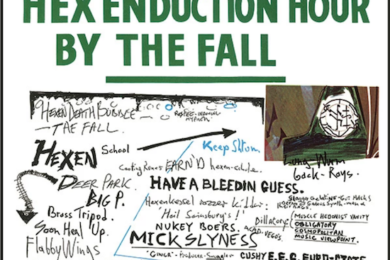
Playing In The Wreckage: 65daysofstatic On Making Music Under Late Capitalism
Underground veterans 65daysofstatic are back with a new album diving deep into the state we're now in. Here, Paul Wolinski makes the case for staying inspired and creative under the impecunious trials of late capitalism

Happy Birthday Abbey Road, The Best Beatles LP… This Week At Least
The boomers celebrated Sgt. Pepper's as the greatest Beatles LP; the Britpoppers backed Revolver; but it seems like millennials are more smitten with Abbey Road. The changing consensus probably says more about generational shift than it does about the Fab Four, according to Michael Hann

